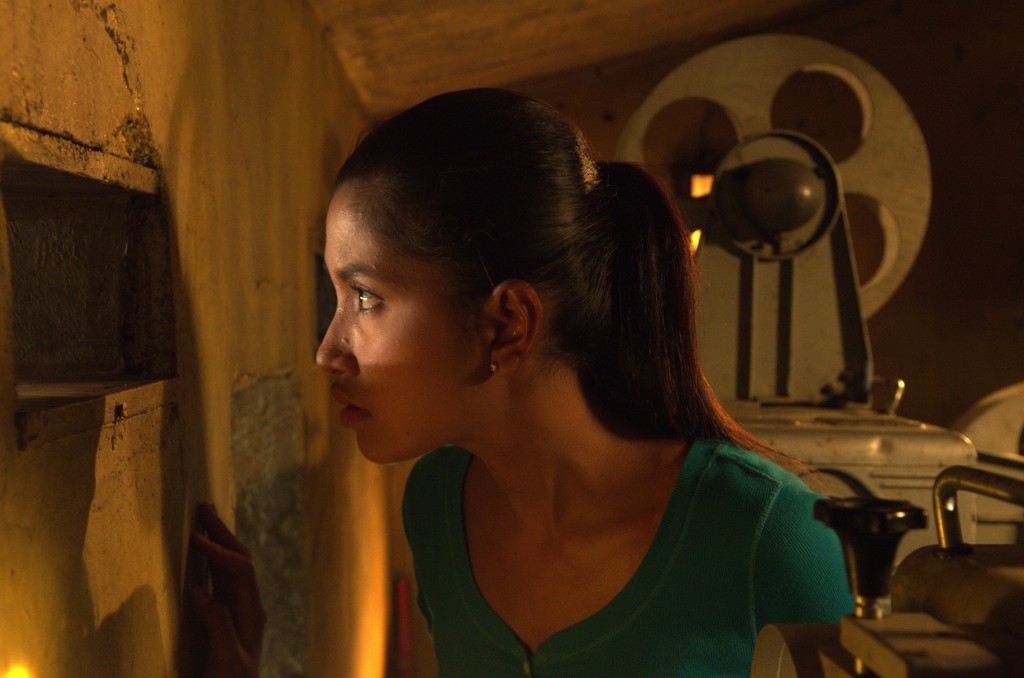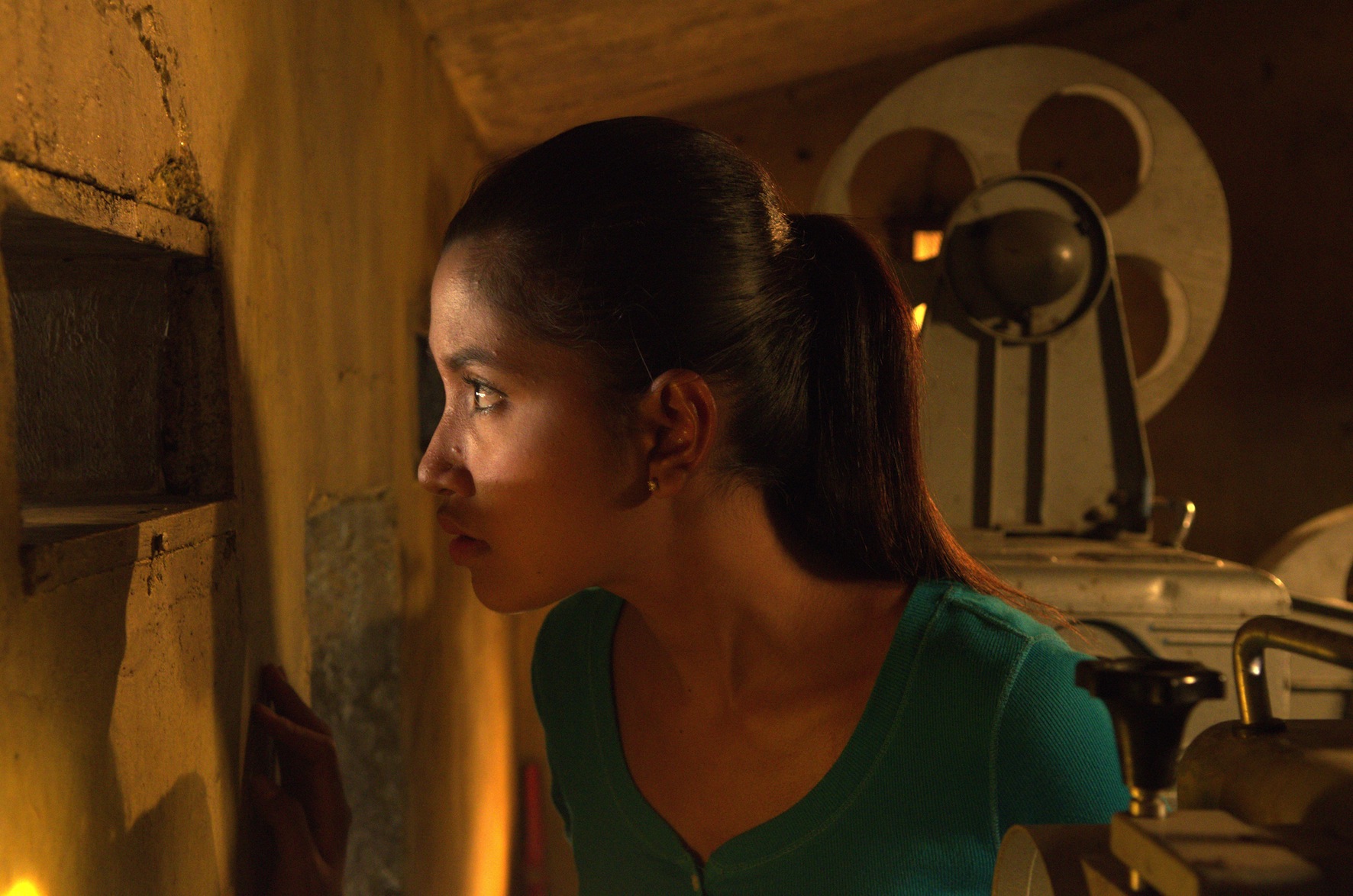
The Last Reel
Written by Ian Masters
Directed by Kulikar Sotho
Cambodia, 2014
Female director Kulikar Sotho’s debut features the vibrant story of an unlikely first-time director, the rebellious Sophoun (Ma Rynet), who flees her unstable home in Pnom Penh and impending arranged marriage, and takes refuge in a decrepit movie theater where she stumbles upon a lost film from the pre-Khmer Rouge era. What follows is a resonating testament to the power of cinema, the relationship between subjectivity and history, and how society struggles to deal with the ghosts of its past.
Defying the expectations of her military commander father, Sophoun is more interested in skipping class and going out than getting married and starting her own family. After a particularly bad episode, she spends the night in the seemingly abandoned theater where youths park their scooters during the day, and meets the elderly, reticent owner. Entranced by the 1970s drama that he begins to play on the screen, Sophoun is upset by the abrupt ending when the owner says that the final reel is lost.
Spurred by the knowledge that the lead actress is her mother – glamorous back then but in fragile health now, Sophoun sets about trying to recreate the film’s ending. Feeling for the first time that she has a purpose, Sophoun convinces herself that showing the final film will ease her mother’s emotional state. However, reopening the past has unknown consequences, as it forces her mother, father and cinema owner to confront the secrets that they’ve kept since the war.
For Sotho, who was born in 1973 and lived through the Khmer Rouge’s rise and fall, The Last Reel is a highly personal story. The manner in which the older characters recount their experiences rings with such fear and poignance that one may safely assume that, in addition to themes of love and family, the story is also a cautionary tale of the generational divides that persist between the young and the old; the ones for whom the Khmer Rouge is merely a scary bedtime story, and those who survived the persecution.
Although melodramatic and predictable at times (young girl goes out on the town in skimpy clothes and falls for a bad boy who, despite waving a gun around at inopportune moments, is actually quite caring), the intertextuality elevates it to something enjoyable and thought-provoking. Cinematographer Bonnie Elliot’s haunting imagery lends itself well to the story, from lingering shots of the former killing fields to dusty, forgotten reels and close-ups of faces longing for a distant past, a different path in life.
The Khmer Rouge regime, which targeted artists like actors and directors, ultimately destroyed ninety percent of existing films. Here’s to a new era of Cambodian filmmaking that, with stories like The Last Reel, will undoubtedly take their place on the world cinema stage.
– Misa Shikuma


